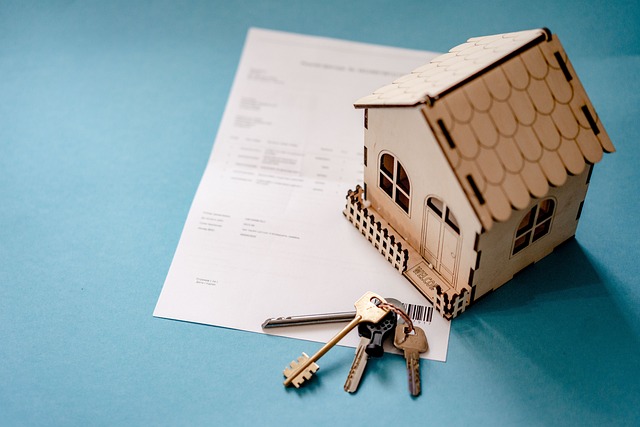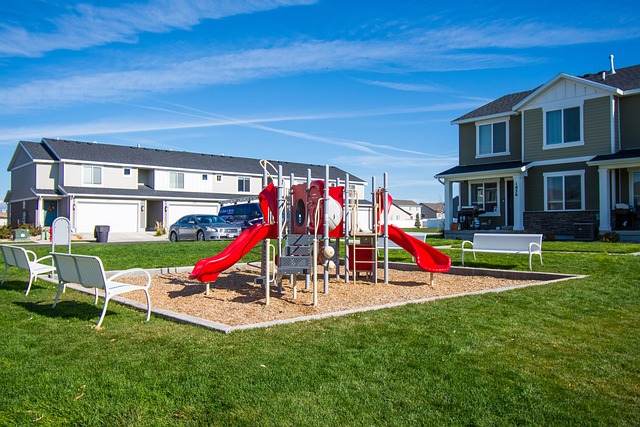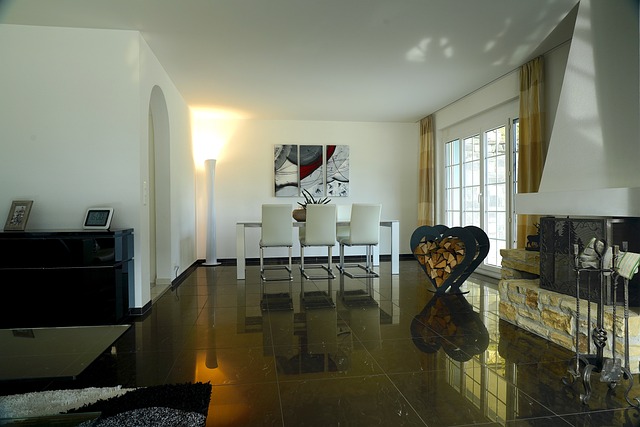Foreign individuals can invest in Singaporean residential properties under specific conditions, primarily by purchasing condominium units, which must not constitute more than 45% of a development. Landed properties like terraced houses, semi-detached homes, and bungalows are off-limits to foreigners. The Singapore Land Authority (SLA) oversees these regulations, ensuring that local citizens' housing needs are prioritized while allowing for a balanced and stable property market that can absorb foreign investment. Foreign entities looking to buy must pay higher Additional Buyer's Stamp Duty (ABSD) rates, with the ABSD serving as a measure to prevent excessive speculation. Prospective buyers must navigate the process by obtaining necessary approvals, completing due diligence, and complying with legal requirements, including securing funds in an escrow account and registering the transfer of ownership at the SLA. It is advisable for foreign investors to engage local experts for a smooth transaction, considering the transparent and secure framework that Singapore has established for foreign property ownership.
Considering the increasing global interest in real estate investment, particularly in Singapore—a hub for business and finance—the article at hand delves into the intricacies of property ownership for foreigners. It provides a comprehensive overview of the legal landscape, key regulations, and eligibility criteria that foreign investors must navigate when considering purchasing property in Singapore. From the Average Price Index (API) to the Additional Buyer’s Stamp Duty (ABSD), this article dissects the factors that influence foreign investment decisions and outlines the necessary steps for a successful acquisition within the city-state’s stringent legal framework. Whether you’re an investor or homeowner, understanding the nuances of Singapore’s property market is crucial for making informed decisions.
- Overview of Property Ownership Laws for Foreigners in Singapore
- Key Regulations Governing Foreign Property Purchases
- Assessing Eligibility Criteria for Foreign Buyers
- The Role of the Average Price Index (API) and Its Impact on Foreign Investment
- Analyzing the Additional Buyer's Stamp Duty (ABSD) for Foreign Entities
- Understanding the Legal Framework and Restrictions
- Navigating the Process: Steps to Purchase Property as a Foreigner in Singapore
Overview of Property Ownership Laws for Foreigners in Singapore

Under Singapore’s property ownership framework, foreign individuals are permitted to purchase residential property but with certain restrictions compared to Singaporean citizens. As of the current regulations, foreigners can own apartments within condominiums, as long as the development has the appropriate permit from the Singapore Land Authority (SLA). This ensures that the overall percentage of property units owned by foreigners does not exceed 45% of the total units in a single project. Foreign buyers are typically barred from purchasing landed properties such as terraced houses, semi-detached homes, and bungalows to preserve local housing stability and affordability. However, there are instances where certain classes of foreigners, including foreign corporates listed on the Singapore Exchange or approved foreign institutions under the Approved Overseas Parties (AOP) scheme, may be eligible for an exemption to purchase landed properties. These laws aim to balance the need for investment inflows with the goal of protecting the interests of local residents in the property market.
Moreover, the Singapore government closely monitors the real estate sector to ensure that property ownership rules are adhered to strictly. Foreigners interested in purchasing property in Singapore should engage a licensed real estate agent or consult legal professionals well-versed in the property laws to navigate the purchase process smoothly. This due diligence is crucial to ensure compliance with local regulations, which can change over time. Prospective foreign investors should stay informed about the latest policies to make informed decisions regarding property investment in Singapore.
Key Regulations Governing Foreign Property Purchases

In recent years, Singapore has implemented a series of regulations to govern foreign property purchases, reflecting its strategic approach to managing real estate investments. The Singaporean government imposes certain restrictions on the property market to protect local interests and ensure a stable housing environment for its citizens. One of the key regulatory frameworks is the Approved Proposals of Foreign Workers’ Accommodation (APFWAA) and the Land Dealings Approval (LDA) system. These mechanisms require foreign individuals, particularly those employed in Singapore, to seek approval before purchasing certain types of properties. The LDA application process is stringent and involves assessing the applicant’s income level, employment status, and the property type they intend to purchase. Foreigners interested in buying condominium units can do so without restrictions, as long as they meet the necessary criteria. Additionally, Singapore has established the Additional Buyer’s Stamp Duty (ABSD) for foreign buyers, which serves as a deterrent against speculative purchases and ensures a more balanced property market. These regulations are designed to maintain the affordability and availability of housing for citizens while also welcoming foreign investment under controlled conditions. It is imperative for potential foreign investors to stay informed about these regulations, as non-compliance can lead to penalties including the reversal of transactions or the imposition of additional taxes. Understanding the key regulations governing foreign property purchases in Singapore is essential for navigating the market successfully.
Assessing Eligibility Criteria for Foreign Buyers

In recent years, Singapore has become a hotspot for foreign investors looking to purchase property. Prospective buyers from abroad are subject to a set of eligibility criteria that govern their ability to acquire residential and non-residential real estate in the country. These criteria were established by the Singapore government to ensure a stable and balanced property market, as well as to monitor economic flows. To be eligible for property purchase, foreigners must satisfy conditions such as obtaining the appropriate Approval of Sale (ASE) from the Singapore Land Authority (SLA), and meeting the Singaporean authorities’ requirements. Additionally, there are different rules that apply to various types of properties: residential versus industrial, for instance. For example, foreigners are generally allowed to buy condominium units without restriction, but landned property transactions require more stringent checks. It is imperative for foreign investors to be well-versed in these regulations to navigate the process successfully. The Singaporean government’s guidelines on property ownership for foreigners are clear and accessible, providing a transparent framework for potential buyers to assess their eligibility before making any commitments. Understanding the nuances of these criteria is crucial for foreign investors looking to capitalize on the opportunities that Singapore’s property market presents.
The Role of the Average Price Index (API) and Its Impact on Foreign Investment

The Average Price Index (API) in Singapore serves as a barometer for property price trends, providing valuable insights into the real estate market’s health and trajectory. For foreign investors considering whether they can buy property in Singapore, the API is a critical metric to monitor. It reflects changes in transaction prices over time across different types of properties, offering a comprehensive view of market dynamics that can influence investment decisions. A rising API indicates a potentially profitable market for real estate investments, while a declining one may signal a more cautious approach. Foreigners interested in the Singaporean property market must stay informed about API trends to align their purchase timings with favorable market conditions. The impact of the API on foreign investor sentiment is significant; it can sway investment patterns and capital flows by reflecting shifts in supply and demand, as well as broader economic indicators. Consequently, for foreigners looking to buy property in Singapore, understanding the API is crucial for making informed investment choices that consider both short-term gains and long-term value appreciation.
Analyzing the Additional Buyer's Stamp Duty (ABSD) for Foreign Entities

In recent years, the Singaporean government has implemented several measures to regulate foreign ownership of property within its borders. A key component of this regulatory framework is the Additional Buyer’s Stamp Duty (ABSD), which significantly impacts foreign entities looking to purchase residential properties in Singapore. The ABSD is a progressive tax levied on the buyer upon the completion of the property transaction, with the rate increasing with the number of property ownerships an individual or entity holds. As of the current regulations, foreign individuals are subject to an ABSD rate that is higher than that for Singaporean citizens or permanent residents, which serves as a deterrent against excessive speculation and ensures a stable housing market. For foreign entities, including corporations and partnerships where foreign individuals hold a majority interest, the duty becomes even more stringent. These entities must navigate a complex set of rules that vary depending on the type of property being purchased—residential or commercial—and the entity’s ownership structure. The ABSD is designed to safeguard local interests while still allowing for controlled foreign investment in Singapore’s real estate market, thus it is crucial for potential foreign buyers to understand these implications before engaging in any property transactions within the nation.
The Singaporean government continuously reviews and adjusts its ABSD policies to reflect economic conditions and housing market trends. As such, foreign entities must stay informed of the latest changes to ensure compliance with these regulations. The ABSD is not the sole factor to consider when assessing the feasibility of property investment in Singapore for foreigners; it is also essential to take into account other related costs such as legal fees, property taxes, and mortgage interest rates, which together will influence the overall economic viability of a real estate purchase. Prospective investors should conduct thorough due diligence, including consulting with real estate professionals and financial advisors who specialize in Singapore’s property market, to navigate these regulations effectively.
Understanding the Legal Framework and Restrictions

Singapore’s property market has a well-defined legal framework that governs foreign ownership, reflecting the country’s strategic approach to real estate investments. As of the current regulations, foreigners are generally permitted to purchase residential properties in Singapore, with some restrictions. These limitations include not being able to own landed properties such as terraced houses, semi-detached houses, or bungalows. Instead, they can invest in condominium units, which are the most common form of high-rise apartment buildings in urban areas. The rules are designed to ensure a stable property market and to prioritize local residents in certain housing segments. Foreigners looking to buy must comply with the regulations set forth by the Singapore Land Authority (SLA), which includes obtaining approval to purchase resale properties that are not more than six years old. This regulatory oversight is critical in maintaining the balance between accommodating foreign investment and preserving a fair share of the housing market for Singaporean citizens. Additionally, the government monitors the property market closely to prevent excessive speculation and ensure long-term stability. Understanding these legal constraints is crucial for any foreign investor or buyer considering entering the Singaporean property market. The legal framework is not only clear but also continuously updated to reflect the dynamic nature of the global economic landscape and the unique position of Singapore as a financial hub.
Navigating the Process: Steps to Purchase Property as a Foreigner in Singapore

In Singapore, the real estate market has clear regulations that govern the purchase of property by foreigners, providing transparency and security for all parties involved. To begin with, foreigners are permitted to buy properties in Singapore, subject to specific rules and restrictions. The process commences with identifying a suitable property within the government land sales (GLS) sites or those available on the open market. It is imperative for potential buyers to engage with a licensed real estate agent who can offer insights into the current market trends and guide them through the selection process. Foreigners must then obtain an Approval of Purchase form from the Singapore Land Authority (SLA), which serves as a crucial step in the transaction. This approval process ensures that foreigners meet the necessary criteria, including having sufficient funds to purchase the property without reliance on local financing.
Once the approval is granted, foreigners can proceed with the sale and purchase agreement. It is essential to conduct due diligence by inspecting the property thoroughly and reviewing all legal documents associated with the transaction. Subsequently, the purchase price must be paid into a solicitor’s escrow account, ensuring financial commitment and safeguarding both parties’ interests. The completion of the sale involves the transfer of ownership, which is recorded in the Register of Titles at the Singapore Land Authority. Throughout this process, foreign buyers should work closely with their legal and financial advisors to navigate the regulatory framework effectively and ensure a smooth acquisition of property in Singapore.
